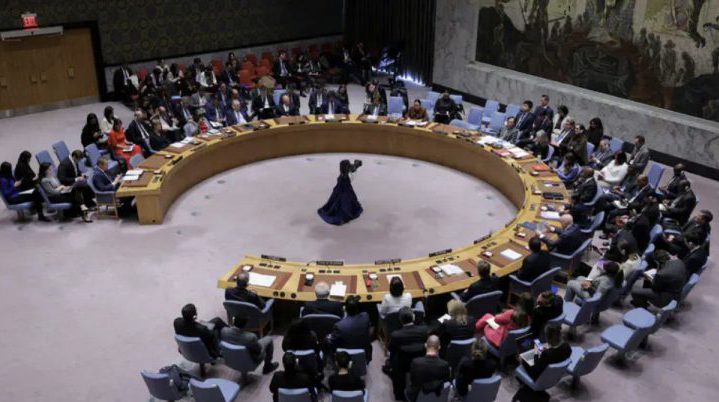Foreign Minister Gideon Sa’ar praised the failure of a UNSC resolution blocking sanctions, ensuring the automatic reinstatement of crippling penalties on Iran’s nuclear program.
The United Nations Security Council (UNSC) on Friday failed to pass a resolution that would have prevented the reimposition of sanctions on Iran’s outlawed nuclear program, effectively clearing the way for the “snapback mechanism” to take effect.
The measure required nine votes but secured only four, leaving Britain, France, and Germany free to trigger the mechanism under the 2015 Iran nuclear deal. The sanctions—set to take effect on October 28—include a conventional arms embargo, restrictions on ballistic missile development, asset freezes, and a ban on producing nuclear-related technology.
Israel’s Foreign Minister Gideon Sa’ar welcomed the decision, hailing it as a vital step to counter Tehran’s ambitions.
“Today, the UN Security Council voted to reinstate extensive sanctions on Iran. Iran’s nuclear program is not intended for peaceful purposes. A nuclear-armed Iran would mean that the most dangerous regime possesses the most dangerous weapon, dramatically undermining global stability and security.”
Sa’ar emphasized that the world’s mission remains unchanged: “Prevent Iran from ever acquiring nuclear capabilities.”
Iran, however, lashed out, vowing to defend its “rights and interests” and threatening unspecified retaliation. Some Iranian officials have even hinted at withdrawing from the Nuclear Nonproliferation Treaty (NPT), echoing North Korea’s path to the bomb.
During the UNSC session, Russia, China, Pakistan, and Algeria sided with Tehran, denouncing the Europeans’ move as “illegal” and a “bad faith play.” Russia’s Ambassador Vassily Nebenzia accused Europe of weaponizing the Council, while China’s envoy declared the decision ended “eight years of diplomacy with one stroke.”
Despite those objections, the sanctions’ return underscores a major diplomatic victory for Europe and Israel—and a severe blow to Iran’s nuclear ambitions. The pressure now shifts to Tehran, whose defiance has already destabilized the Middle East through terror proxies in Gaza, Lebanon, Syria, and Yemen.





